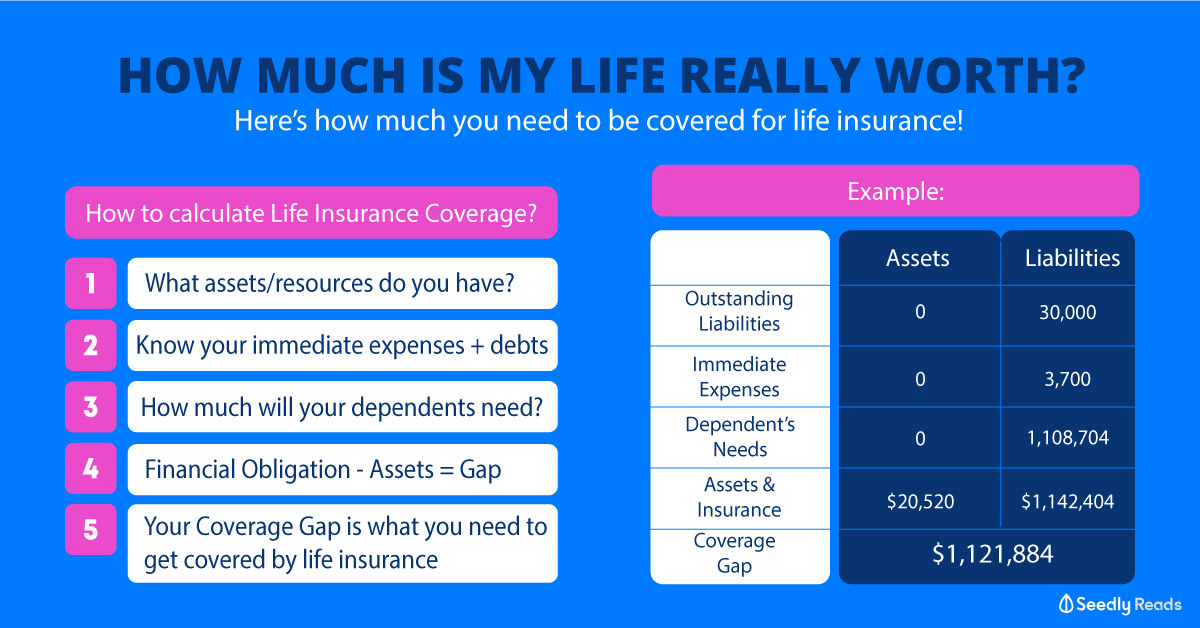Advertisement
How much of your take home salary do you put in insurance
I am a fresh grad, just started working. I currently have a whole life insurance ($50/month that needs to be paid forever) that has 50k coverage for death,TPD,CI. My financial advisor is suggesting I can get a whole life insurance ($2500/year) which I only need to pay for 20 years and will get whole life coverage then. It has a higher coverage of 150k and includes early CI.
It feels pain to be paying such a large sum so im asking for thoughts if there’s a need for it? What’s the %of pay u use?
10
Discussion (10)
Learn how to style your text
Reply
Save
Tan Siak Lim
26 Nov 2021
CFP. Director, Financial Advisory Group at Financial Alliance
You can't use a percentage really. For young person who just started working, it could be 10%, but for a high-income earner, probably 3% or lesser. Better to talk about your needs instead. $50k coverage in today's standard is quite low, normally should aim for around $300k for critical illness coverage for a young person. $2,500 premium for $150k coverage sounds expensive.
Reply
Save
Nigel Tan
25 Nov 2021
Executive Senior Financial Planner at Great Eastern Life
The recommended guideline is usually to not exceed 10% of your takehome income. You don't actually have to meet the full 10%.
He recommended a limited pay option that covers you for a lifetime, probably with a multiplier feature. Some people prefer to pay it off early, therefore choosing a shorter payment period and focusing the rest of their funds into other goals (like retirement / home upgrade) when they're done.
Others prefer to buy term over limited pay whole life as a cost effective approach to maximising their coverage. No returns and you gotta committ throughout the entire policy term until it expires.
Both are not wrong, really boils down to which you prefer. Would have been better if he gave you options to choose from and highlight the pros and cons of both methods.
It is more common see the younger generation buying term insurance as coverage over whole life. They're more educated and more savvy with investments. Older generation peeps didn't like paying insurance and get nothing back. They like the idea of "cash value" and "forced savings" and back then when they bought that policy for you, honestly the market not alot of choices. It wasn't as recognised and developed as today.
Reply
Save
Some of the agents I've met said I should allocate 10% of my take-home salary to insurance but that is BS. You should minimise the amount you're paying while maximising your coverage. So the 10% is more of an upper bound rather than the specific %.
There are several heuristics you can use when you purchase your insurance.
Death/TPD: 10X your annual income.
Critical Illness: 3-5X your annual income
Early Critical Illness: 1-2X your annual income (although I know some will say 6months is sufficient also)
There is also hospitalisation, personal accident and/or occupational disability.
I chose term life over whole life plans. My opinion is that the point of covering against death/tpd and critical illnesses is for income replacement. This is so that your dependents can be provided for if you are unable to work.
- This should end when your dependents have either passed on (your parents) or when they have become economically productive (your children if any). Hence, I don't see the need to insure myself against death, tpd and critical illness beyond age 65. My health insurance will still be able to cover my CI treatments.
I'm currently only missing occupational disability but my insurance premiums are <5% of my take-home pay.
Reply
Save
Hi Jim! I believe the $50K life coverage is bought by your parents when u were young. However, as u ...
Read 3 other comments with a Seedly account
You will also enjoy exclusive benefits and get access to members only features.
Sign up or login with an email here
Write your thoughts
Related Articles
Related Posts
Related Posts
Advertisement









Hi Jim, the answer is to pay as little as possible. Conventional advice is that annual premiums should not exceed 10% of your annual pay, but 10% is not a small amount. If you can, try to aim way less than that.
When it comes to insurance, first, you want to pay the least amount for the highest coverage. Second, the premium has to be at an amount comfortable for you. If you feel the pinch paying $2.5k per year for 20 years upfront, you may wish to think twice about committing.
Also, beside the whole life plan, are you currently servicing other premiums? Do factor these into your calculations for total premiums.
Perhaps this video here would be useful for you: https://youtu.be/E_7s0sTQBlU
(Disclaimer: I am not affiliated to any organisation mentioned in the video. I'm a casual viewer who just chanced upon this video on Youtube while I was lost and reviewing my insurance coverage. It was helpful in offering fresh perspectives for me, so I'm just sharing in case you'd find it helpful too.)
It's nice to get all the coverage in the world (who don't want??), but sadly our money is finite, and we are limited by affordability. In this case, we have no choice, but to prioritise. If you are really tight on finances, you may consider settling for a lower coverage for now or opt for a term plan, but at least have your bases covered (the most important of all being getting a hospital plan, then life and CI). Then as your earning power increases in the near future, you may wish to take a look at your policies and increase coverage. Don't need to one-shot-get-all if you are uncomfortable.
I'm not an agent or advisor - just a fellow consumer like youself! Paying for premiums is a lifelong commitment and there are penalties for surrendering early if you change your mind, do spend time doing your own due diligence before saying yes to anyone.